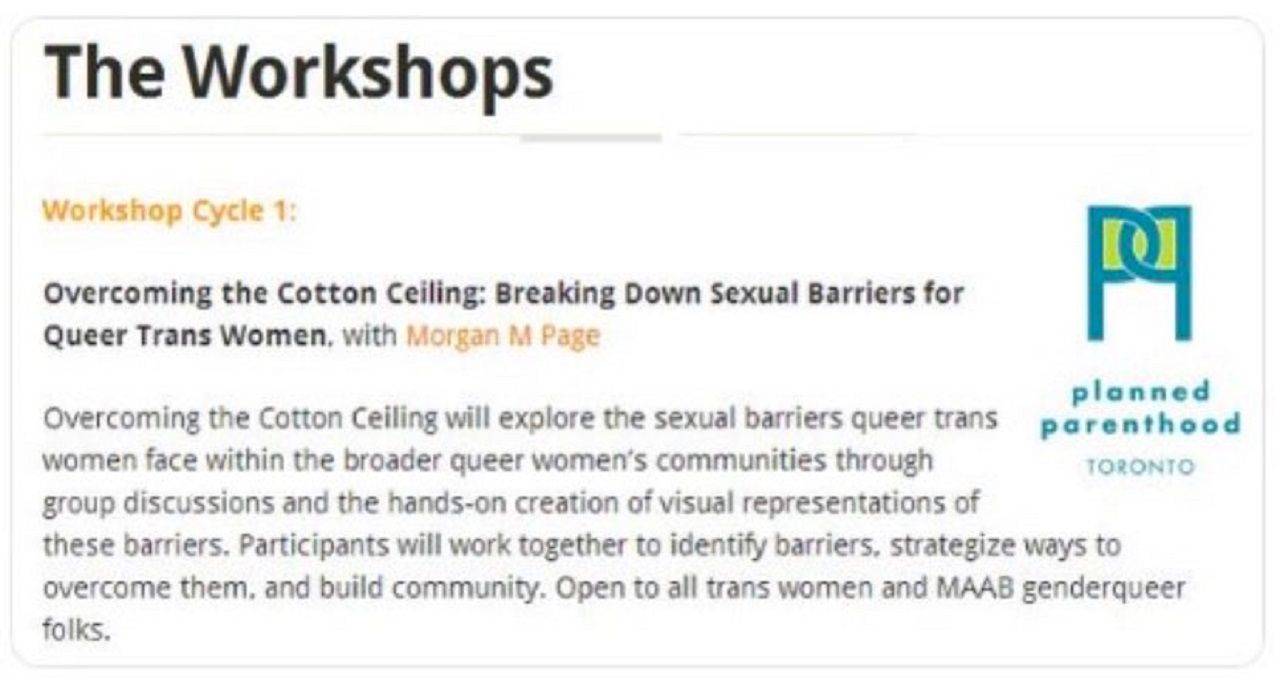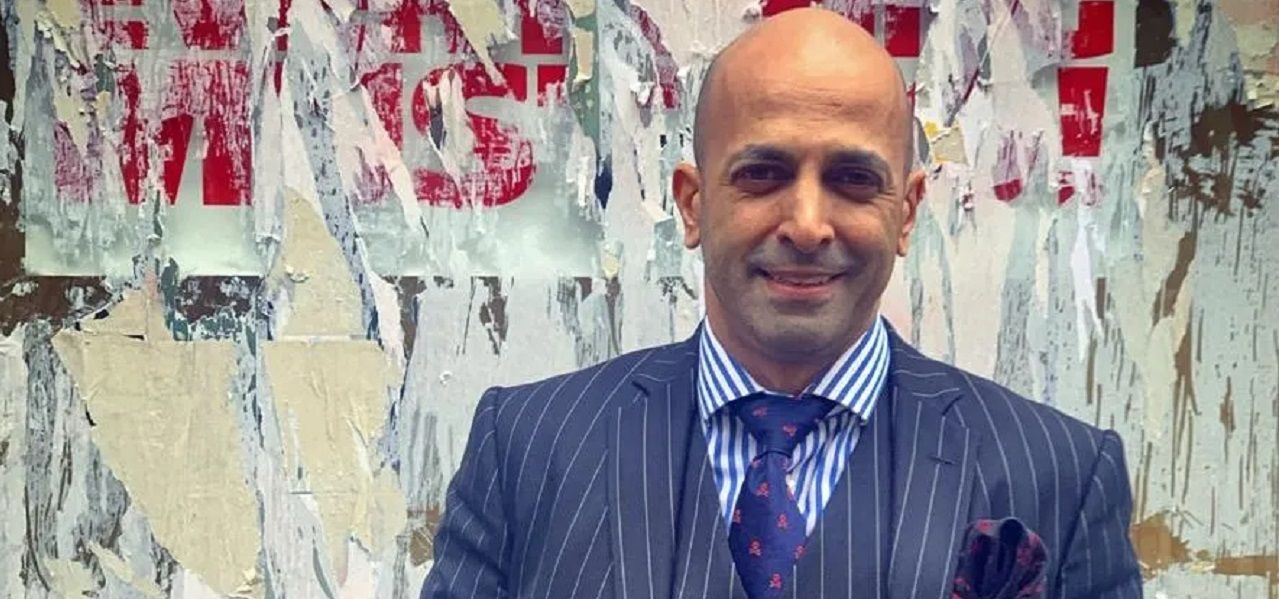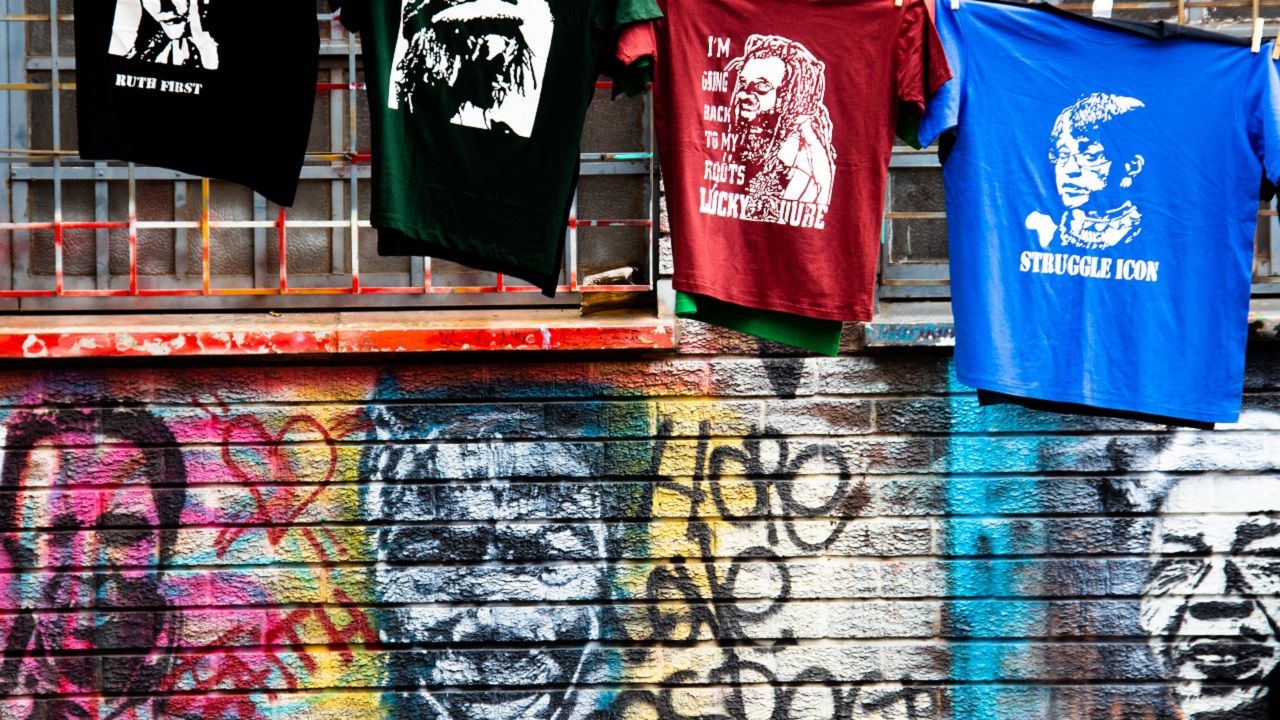Joyce Activated, issue 7
Barrister Cathryn McGahey likened Allison Bailey’s sexual orientation—that of a female exclusively attracted to females—to the male sexism that holds women back in the workplace, and to the racism of the white supremacists who fought to sustain apartheid.

I had intended to write something else this week, but then Cathryn McGahey QC, of Temple Garden Chambers* and a former vice-chair of the Bar Standards Board, gave evidence in the hearing of Allison Bailey’s case against her barristers’ chambers, Garden Court, and Stonewall, alleging discrimination on grounds of sex, sexuality and gender-critical belief. And what she said was even more extraordinary than the ramblings of Kirrin Medcalf, Stonewall’s head of trans inclusion, two weeks ago (here’s the issue where I focus on what Medcalf said, and the highlights of her testimony on Sex Matters’ website). And so I decided to change tack.
This issue of Joyce Activated is free, because I want as many people as possible to understand what was said in the Bailey hearing. Please share widely, and if you enjoy it, please consider subscribing.
Bailey is an extraordinary woman. A lesbian and the child of Jamaican immigrants of the Windrush generation, she has spent a lifetime battling obstacles and prejudice. As a child she witnessed her father’s violence against her mother. Between the ages of nine and 11 she was sexually abused by a family friend (as an adult she at least had the satisfaction, very rare for a victim of historical sexual abuse, of seeing her assailant jailed). Her experience of male sexual violence, she says, “was central in shaping my view of the world”. (You can read more about her in her witness statement.)
Yet on April 24th McGahey likened Bailey’s sexual orientation—that of a female exclusively attracted to females—to the male sexism that holds women back in the workplace, and to the racism of the white supremacists who fought to sustain apartheid. Under cross-examination by Ben Cooper QC, she attempted to explain why, asked by Garden Court to form a view on whether a series of tweets by Bailey in 2019 were likely to have fallen short of the behaviour expected by the Bar Standards Board, she had concluded that two might well have.
Most of the cross-examination of McGahey focused on one of those tweets.
Stonewall recently hired Morgan Page, a male bodied person who ran workshops with the sole aim of coaching heterosexual men who identify as lesbians on how they can coerce young lesbians into having sex with them. Page called “overcoming the cotton ceiling” and it is popular.
Some background: Morgan Page is a Canadian transwoman who now lives in London. The workshop Bailey referred to happened in Toronto in 2012 and has since become notorious. Held under the auspices of Planned Parenthood, it was entitled “Overcoming the Cotton Ceiling: Breaking Down Barriers for Queer Trans Women”.

Participants were to discuss the “sexual barriers” that queer trans women experience within “broader queer women’s communities” and “strategize ways to overcome them”. (If you want to hear more about Page, listen to Benji, a young Canadian lesbian who identified as a transman in her teens and attended a youth group that included Page, in this excellent interview with Benjamin Boyce.)
Among those who complained about the “cotton ceiling” tweet were Stonewall, because it “misgendered” Page with the description “male-bodied” (to quote Medcalf, transwomen don’t have male bodies, they have transwomen’s bodies). But what bothered McGahey was Bailey’s use of the word “coerce”. Without knowing what actually happened in the workshop, she said, there was no reason to think it was coercive. That meant Bailey’s tweet was without proper foundation and should be deleted (Bailey refused; it’s still live).
The cross-examination was deeply frustrating, because it’s obvious that the premise of the workshop is inherently coercive. The “cotton ceiling” is a reference to a lesbian’s knickers. The analogy with the glass ceiling frames the lesbian’s refusal to have sex with men who identify as women as bigotry, similar to the anti-woman prejudice that means working women find it harder than men to get promotion. The reference to “strategizing” can only mean brainstorming ways to get women who experience sexual attraction solely towards female people to have sex with male ones, on the basis that those males are in some sense women. That means convincing such women to accept someone else’s version of reality—a man’s insistence that he is really a woman—over the signals coming from their own senses, their own sexual boundaries and their own experience of desire.
I’m willing to accept that McGahey doesn’t know what happens when a lesbian clearly and unambiguously states that her sexual boundaries exclude all males, however they identify (though I note that Bailey, when under investigation, gave her plenty of supplementary reading material). I’ll give just two examples here.
The first is a pair of a videos by Riley J. Dennis, a transwoman. I watched the first, entitled “Your Dating Preferences Are Discriminatory”, several times when writing my book, because I quoted from it, but it has since been set to private. It’s been archived, and if you haven’t already seen it, I recommend watching. It’s only a little over five minutes long and it really couldn’t be clearer in its framing of lesbians as bigots if they are unwilling to consider transwomen (for the avoidance of doubt, men, including those with fully functioning penises) as sexual partners.
For the second, “Are Genital Preferences Transphobic?”, rather than watching Dennis I suggest watching this excellent response video by the sadly deceased Magdalen Berns.

My second example is a story I also quote in my book. It was told to me by Lucy Masoud, a former firefighter who is now a barrister. In 2020, newly single, she joined several dating apps. Although she set her profile to “woman seeking women”, every third or fourth match, she says, was a transwoman—there was no way to stop them being presented to her; no way to indicate that her same-sex orientation meant that male people simply would not fit the bill. Then in response to a quirky question set on one app, Hinge, she mentioned that among her criteria for a match was that the person was a “biological female”. That got her permanently banned for “transphobia”.
Do these constitute “coercion”? Given that they’re just the first two examples that came to mind of the way in which lesbians are treated if they make it clear that they won’t sleep with any male people, and they’re absolutely typical, I would say yes. They involve shaming, shunning, excluding and expressing disgust at the idea of a woman who wouldn’t be “open to” sex with male people.
A lesbian who insists on speaking about her exclusive same-sex orientation will not be able to use any dating app, join any mainstream lesbian group or march in Pride. She will be cut off from the “LGBT community”. If she’s at university, she’ll find herself without friends, barred from LGBT groups and social events. If she keeps quiet, she’ll quickly find that at such events there are plenty of men who identify as women, and who regard themselves as having been given licence to hit on her. How is she to respond? A clear “no” will get her accused of transphobia, and everyone else will side with him.
There’s a name for all this, and it’s “gay conversion therapy”. A woman’s statement that she is exclusively same-sex attracted is being explicitly framed as something to work on and argue away. That Riley J. Dennis video is simply a sly version of the sorts of things a homophobic father or evangelical pastor might say to a lesbian daughter: you can’t know you won’t like sex with a man if you’ve never tried it; you haven’t met the right man; you need to look at the whole person; it’s weird and perverse to focus exclusively on genitals. All this is no less coercive because the techniques used are wheedling and shaming rather than a punch in the face.
It was simply bizarre listening to McGahey dance around trying to defend conversion therapy (to be clear, she didn’t call it that, and I don’t think she understood that that’s what it was), just a few days after reading this ridiculous “exposé” of my friend Az Hakeem by Patrick Strudwick, one of Britain’s worst journalists. Hakeem is a consultant psychiatrist, and a gay man who knows a lot about the homophobia at the heart of trans ideology; he worked at the Tavistock gender-identity development clinic (GIDS) more than two decades ago. He’s also the author of a book called “Trans”; it’s fascinating (and he has been very gracious of my appropriation of the title).

In this ludicrous article (which I’m afraid is now behind a paywall), Strudwick describes Hakeem’s 25-minute assessment by Zoom of a 17-year-old girl who has recently told her parents that she wants to transition. Hakeem needs to decide whether he can work with her, so he asks her some mildly challenging questions, such as why she thinks she’s really a man, whether it’s occurred to her that she might change her mind and if she realises that physical transition may limit her dating pool. It quickly becomes obvious that she isn’t willing to engage, and so Hakeem ends the call early and declines to take her as a client. And Strudwick presents this as “conversion therapy”! My favourite line from the piece, against stiff competition, is a quote from the girl: “It’s not like you sign a consent form for thoughts to enter your head…Just by hearing the stuff, it gets in.”
The other thing the cotton-ceiling workshop brought to mind is pick-up artistry. If you haven’t come across this delightful male subculture, it’s one in which men share techniques for getting laid. A few are rather sensible, such as turning yourself out well and resolving any self-esteem issues before entering the dating market. But mostly, it’s about such delights as “negging” (subtly insulting a woman to make her feel less secure in her own desirability) and ways to overcome “last-minute resistance”—that is, a woman you think you’re about to have sex with saying “no”.
In her testimony, McGahey also offered two ways to think about the cotton-ceiling workshop. They were, to say the least, somewhat different from mine. The first elaborated on the offensive “glass ceiling” comparison. The second, incredibly, was even worse: she compared transwomen strategizing ways to have sex with lesbians with anti-apartheid campaigners seeking truth and reconciliation. In other words, she analogised lesbians who resist transwomen’s approaches to white supremacists.
In its play on the idea of the glass ceiling, Cooper put to McGahey, the concept of the cotton ceiling “indicates that it inherently implies some sort of discriminatory barrier”. That was true, she acknowledged, in the sense of “lesbians not wishing to enter into…relationships with a specific group”. But that didn’t mean the group on the exclusionary side of the barrier was necessarily targeted for shaming (to be clear, McGahey didn’t use the word “exclusionary”, or any derivative—I’m using it to highlight the fact that in both glass and cotton ceiling analogies, one group is trying to enter and the other is trying to keep it out).
“There must have been thousands of workshops on overcoming the glass ceiling,” said McGahey. “Nobody who goes on these workshops thinks that every man in a position of power is an appalling misogynist who should be shamed.” In such workshops women would explore ways of “overcoming barriers”, she said, but those ways didn’t necessarily involve any sort of coercion of men. And she gave an example: encouraging women to build up their confidence so they would put themselves forward for promotion more often.
In several followup questions, Cooper sought to unpick the assumptions behind the glass ceiling/cotton ceiling analogy. The difference, he pointed out, was that “nobody reasonably thinks that women should be prevented from rising up the corporate ladder”. McGahey disputed that, saying that the entire reason for holding glass-ceiling workshops was that some men, “either consciously or unconsciously”, did hold that view. Did that mean, Cooper asked, that the implication of the “cotton ceiling” was that there were some lesbians who, consciously or unconsciously, don’t want to sleep with “transwomen, who are male-bodied, because of similar prejudice”? McGahey replied that it did.
Cooper then asked whether it was a matter of “prejudice” for a lesbian to be same-sex attracted; to say: “I am not attracted to men, including men who identify as women.” In a series of frustrating responses, McGahey repeatedly missed the point. It’s up to everyone to make a personal choice about whom to sleep with, she said: “I’m not quite sure what you’re getting at.” Cooper tried again. Are lesbians, he asked, entitled, “as a class”, to define themselves as “same-sex but not same-gender attracted”? Lesbians, McGahey replied, are defined as “attracted to other women”. Whether the legal definition included transwomen, she didn’t know: “I’m not a discrimination lawyer.” (For what it’s worth, it doesn’t.)
Could she understand, Cooper asked, how “deeply concerning and offensive it is for lesbians to be told that their sexual attraction is a form of prejudice”? Certainly, she replied, but that wasn’t relevant to the question she had set herself concerning the tweet, namely: does this workshop advocate coercion? To which Cooper responded that it was about “coaching men who identify as women to get into lesbians’ knickers by overcoming discriminatory sexual barriers”. That, she said, “does not imply coercion”. Overall, her responses strongly reminded me of the men’s rights activists who defend pick-up artists’ techniques on the grounds that they involve persuasion, pressure, persistence and a refusal to take “no” for an answer—but not coercion.
You might have thought it wise for McGahey to stop there, but instead she ploughed straight on, not even waiting for another question from Cooper before drawing another, even more offensive, comparison—with post-apartheid South Africa. One of the first things that President Mandela did after decades of “appalling behaviour and mistrust between groups”, she said, had been “try to get the whole country united behind Francois Pienaar’s Springbok World Cup team”.

Both analogies were premised on there being actual, objectionable discrimination, weren’t they, asked Cooper. “Yes,” replied McGahey, before immediately qualifying it: “or history of fear and mistrust between groups”. Was it not deeply offensive to many lesbians to be told that their objections to sleeping with transwomen were “analogous to the difficulties that whites had accepting black integration in South Africa?” To which she again replied that her opinion on that was irrelevant, because the sole question she had to answer was whether the cotton-ceiling workshop had been coercive. “I, of course, accept that offence is caused between various groups by discriminatory behaviour,” she said. “But I wasn’t being asked to address such a wide social issue.”
At this point Cooper switched to the sort of language McGahey clearly preferrs. The workshop had been aimed at exploring the ways “transphobia and transmisogyny” affected sexual desire, hadn’t it? And wasn’t its inherent premise, therefore, that the sexual barriers of lesbians were rooted in transphobia and transmisogyny? Finally, a straight, unqualified answer: “Yes.” But the clarity didn’t last. Cooper asked whether she now understood that Bailey’s central point was that it is “inherently coercive” to label lesbians as transphobes or transmisogynists for not wanting to sleep with men. To which she responded that her task had not been to consider whether that was inherently coercive, but whether the workshop had actually encouraged any coercion. On that issue, she still insisted, there was no evidence.
And then, unprompted (imagine being so lost to all sense that this seemed like a good idea), she returned to the analogy with South Africa and racism. Getting the whole country to unite behind the World Cup, she said, had not been done by “labelling either side racist”. Just as you might see racism as the “underlying problem” and then “look at a way of addressing it”, you might feel that “transphobia and transmisogyny” were problems, and look at ways of addressing those. Those ways need not involve any coercion. Rather, they might include “creating greater understanding” or encouraging transwomen to “engage with lesbians” so that they would be “more willing to understand that transwomen feel female; are female; whatever”.
But wouldn’t a transwoman “engaging” with a lesbian in such a way as to persuade her that the transwoman is “a woman in whom she should be interested sexually…be sexually coercive behaviour” Cooper asked. “Not at all. I mean, it might be,” McGahey replied. But wouldn’t saying “you may want to consider sleeping with me because I feel like a woman” imply discrimination in not wanting to do that, and thereby “apply an element of coercion”? At which McGahey wrapped it all up in one unsurpassable response: “No, I disagree with that. You could again draw parallels with the glass ceiling or with encouraging racial integration.”
When I sat down to write this, I knew that I would be angry and distressed. In her evidence under oath, McGahey analogised three situations, repeatedly and in detail: women attempting to rise in their careers against male opposition; black South Africans fighting for full civil rights; and men who think of themselves as women trying to get lesbians to accept them as sexual partners. The glass ceiling; apartheid; the cotton ceiling—three barriers she framed as similar, with oppressed people on one side and oppressors on the other. This puts Bailey—a black lesbian and survivor of sexual assault who rose from humble origins to high in a respected profession—on the same side as men who think women aren’t up to senior jobs, and white supremacists.

It puts men who “strategize” ways to get into lesbians’ knickers on the same side as women passed over for promotion and—I can’t believe I’m typing this—black South Africans fighting to end apartheid. Lesbians who say that they sleep with no men, not even those who identify as women, are bigots; men who refuse to accept women’s sexual boundaries are civil-rights heroes. Bailey is Eugène Terre’Blanche, the white-supremacist Afrikaaner who led the backlash after the end of apartheid; Morgan Page is—somehow—Nelson Mandela.
How can someone possibly think like this? That’s a big question with many answers, but in reading over our notes of McGahey’s testimony I noticed something for the first time that gives me a new insight.
In the words she chose and answers she gave, McGahey continually abstracted societal forces, in particular hatred and discrimination, rather than describing them as things people do and suffer, albeit under the influence of societal structures and systems of belief. The sole example she offered of an action to help get rid of the glass ceiling is to build up women’s confidence so they are more likely to apply for promotion. She described apartheid as having left a legacy of “appalling behaviour and mistrust between groups”. Mandela had not united South Africans by “labelling either side racist”. The cotton ceiling was an illustration that “offence is caused between various groups by discriminatory behaviour”. People who wanted to help transwomen to get lesbians to have sex with them could work on “creating greater understanding” or encouraging transwomen to “engage with lesbians”.
She has clearly lost sight of who is doing the hating and discriminating, and to whom. The glass ceiling and racial discrimination become symmetric barriers: things that everyone needs to work to end, with no distinction whatsoever between those who benefit and those who suffer. No longer are women below the glass ceiling and men above it; the “apartness” of “apartheid” is implicitly accepted on its own “separate but equal” terms. And a lesbian’s knickers are just another barrier, with no consideration of the difference between the woman whose sexual organs they cover, and the man who wants them out of the way so he can penetrate her.
This issue of Joyce Activated was free. If you would like to read more, please consider a subscription.
One of the benefits for subscribers is an audio version: here is Issue 7, read by me.
* This article originally wrongly stated that Cathryn McGahey was at Garden Court Chambers—she’s actually at Temple Garden Chambers. This was fixed on May 27th 2022.